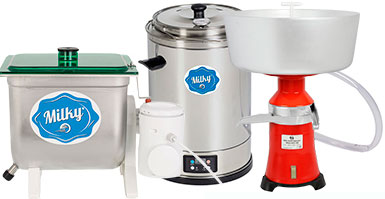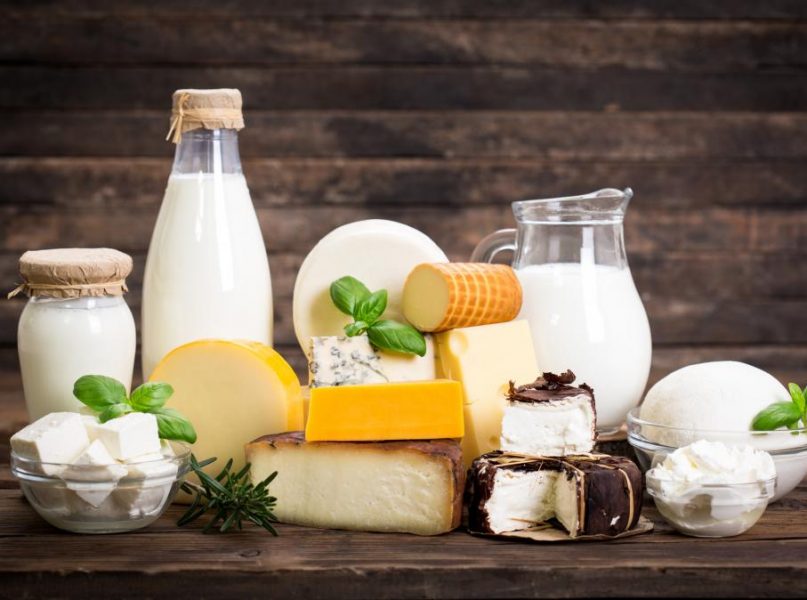There is a lot of discussions around the best way for a small dairy business. Should it sell raw milk or process it into dairy products like butter, yoghurt or others? We decided to ask dairy owners and dairy equipment suppliers for their opinion, which way is the best for them and why.
As a result, we found that there are few things any dairy has to take into account before choosing the right way of operation:
1. First of all, you have to check which dairy products are popular on your market? And if the market price is acceptable for you?
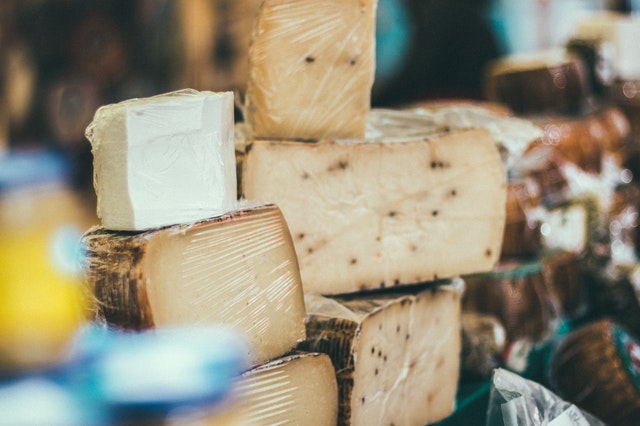
“As with any business, it all depends on what the market is calling for and how you can deliver it to your customers. First the farmer will need to do market research and identify a product that is not currently available or available in quantities large enough to satisfy the market demand. Then the farmer will need to determine what the manufacturing, marketing and distributing costs will be compared to the price he or she can sell it for.” – Steve, Vermont, USA
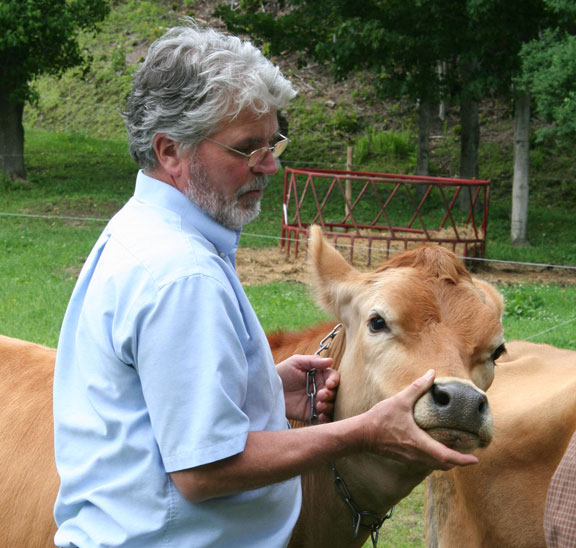
Steve, Vermont, USA
Important! How do you think, are you ready for running a small dairy business? Download our Checklist with 15 Things You Should Consider Before Starting a Small Dairy Business. It will help you to avoid some costly mistakes.
2. As any dairy operates in the food industry, find out if there are any regulations on your market.
“In the US, there are many states that do not allow the sale of raw milk direct to consumer. The testing requirements to sell raw milk in many states that do allow it are stricter than processed milk sales for licensing. Many insurance companies here (US) will not insure product sales of raw milk to consumers, you can sell to other processors, i.e. bottlers & cheese makers. Some states do allow raw milk sales that are labeled “For pet use only.” That is helpful, especially for dairy goat farms since goat milk is often considered the milk of choice for orphaned kittens and puppies.” – Shirley, Maine, USA
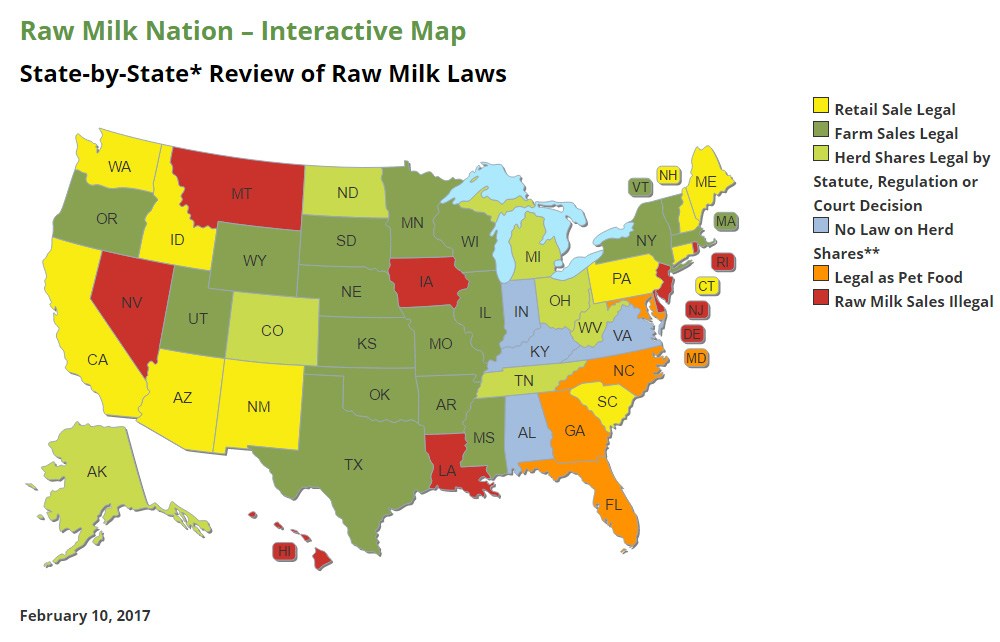
Source: Raw Milk Nation
“The government regulations will determine what dairy products you can legally sell and how they must be prepared for sale” – Steve, Vermont, USA
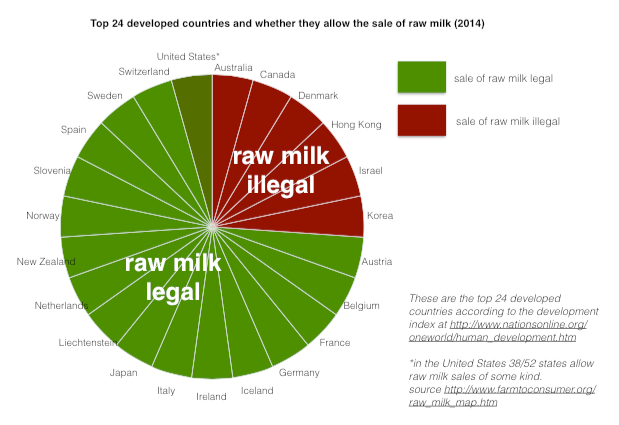
Source: Quora.com by Lily Bhat
“Really the state controls what we do he in Alabama. You cannot sell any dairy products without a state licenses. If you give it to friends and family there isn’t any certification requirement there. I make it a habit to pasteurize all my milk regardless of what I’m going to make out of it.” – Randall, Alabama, USA.

Randall (in the middle), his wife Peggie and County Agent Mr Eddie Wheeler (on the right), Alabama, USA
3. If your market regulations allow it, raw milk is the best product to start with.
“There is no doubt that the easiest way to for a small dairy farmer to get started is to sell raw milk right from the farm, where raw milk sales are allowed by law. But there are disadvantages to selling raw fluid milk, namely shelf life limitations and flavour issues. If you are selling raw milk, you can’t afford to discard milk that has gone out of code or lost its farm fresh flavour. The cows must be healthy and clean and the milk handling and cooling equipment must be kept squeaky clean and it good working order.” – Steve, Vermont, USA
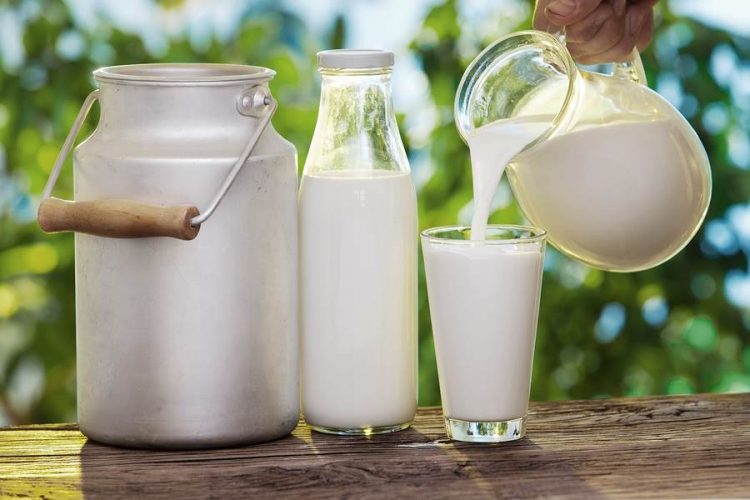
Source: Jane’s Healthy Kitchen
“I feel raw is the way to go. The customer can take it a step further if they want. Unfortunately, I live where raw milk is not allowed to be sold. So, all I can do is use it for my family.” – Debbie, USA
4. If the raw milk is not your way or if you want to protect your raw milk from wastage, you can process it into different dairy products:
“If local regulations allow it, and do not make the processing and start up costs too expensive, you can convert the fresh milk into products that have a longer and more dependable shelf life, such as butter, cheeses, cultured products and ice cream and gelato. But plus, if a farmer wants to make a variety of cheese, then he or she must study the art of cheese making and become an artist, capable of making a superior cheese.
In the US, small scale butter production is viable but only if your local inspector will allow the cream to be hand skimmed once it has risen. Freezing actually improves the flavor and texture of butter.” – Steve, Vermont, USA
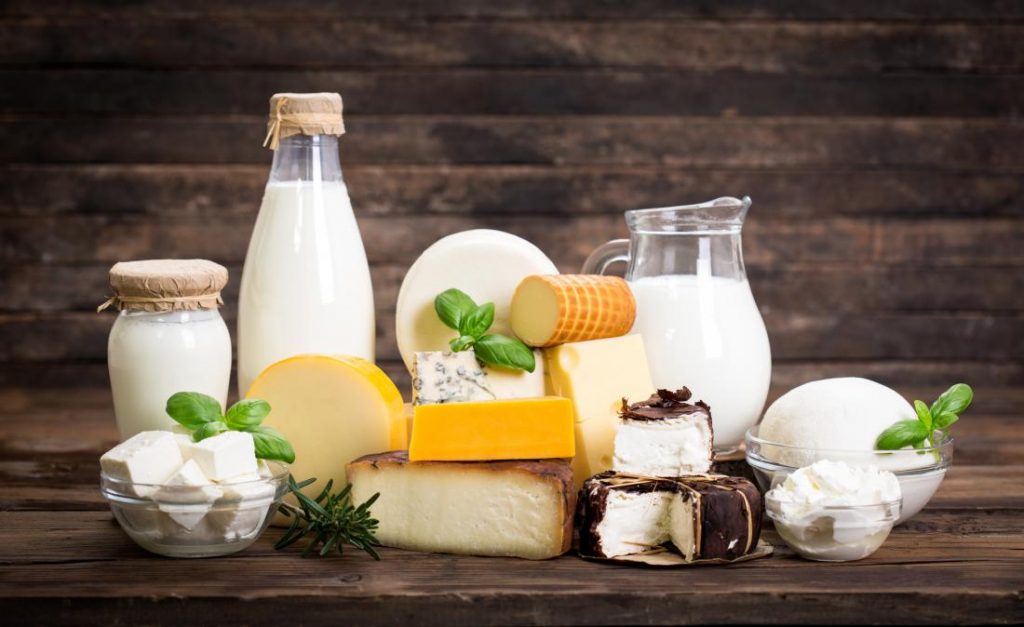
“My story on creating raw milk products was the excess milk I had from my cow and the need to do something to not waste the milk I had… I grew up with a grandmother that taught me how to make simple cheeses and butter. I like the taste of homemade products. I then shared the products with friends and the friends started asking me if I made ______. That’s how I got into the product side. It is easier to sell just the raw milk. BUT in retail there is an ebb and flow of customers and the milk production continues. So, I just do what I can to reduce spoilage or waste of my product. The money is good no matter what form I sell the “milk”. That is how I went from one cow to six.” – Brian, Tennessee, USA
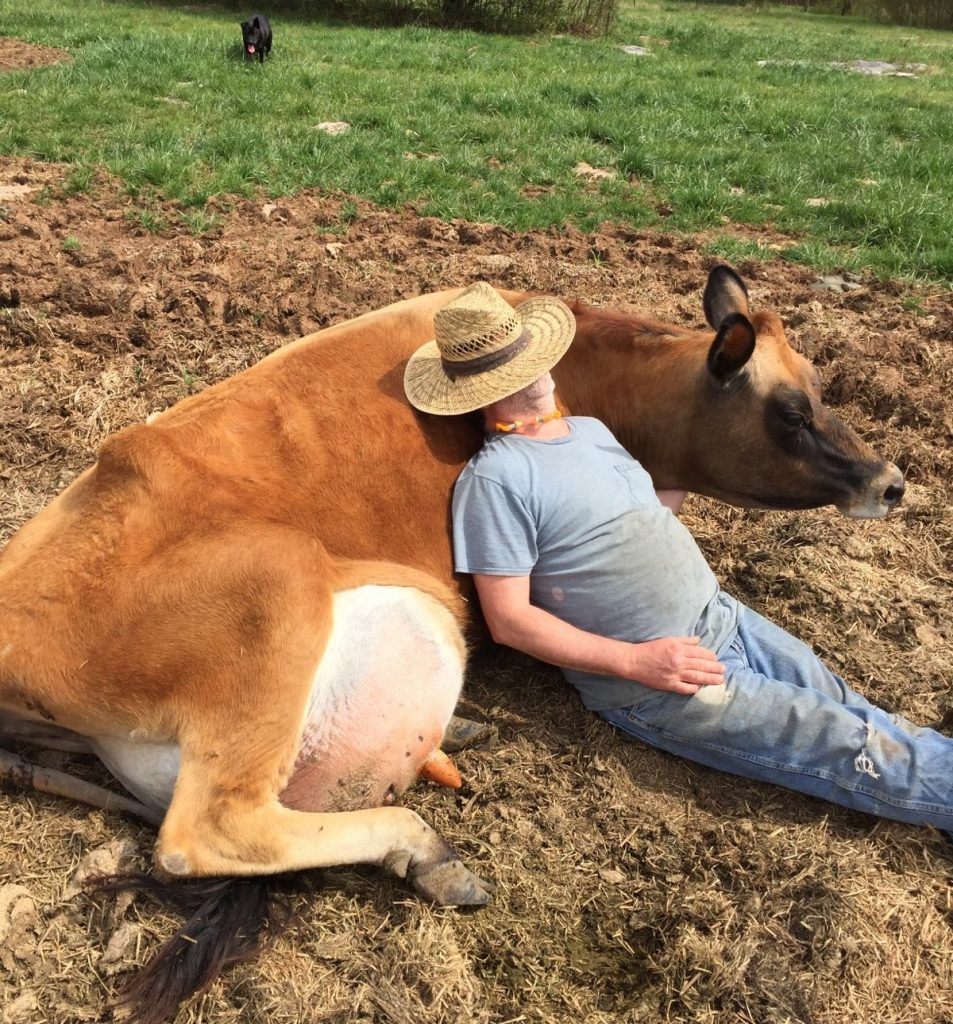
Brian, Tennessee, USA
“(I think the best way for dairy development is) making products that last longer than milk.” – Gert, South Africa
To sum up, there is no easy answer to what is better, selling raw milk or dairy products. If your market regulations allow that, selling the raw is the easiest way to start your dairy business. But if your local regulations don’t allow that or if you have an excess of milk, then producing of butter, cheese or other products could be the best way for you to develop your dairy business.
Please press Like if you found this article useful.
Which topic would you like us to study next? Please leave your comment.


